You’ve just landed after a long flight. You’re half-asleep, waiting to get through customs. You hand over your passport, expecting the usual questions. Then the officer looks up and says, “Can I see your phone?”
Sounds odd, right? But it happens; more often than you’d think.
It happened to Haisam Elsharkawi, an American citizen flying out of Los Angeles. He says he was questioned, handcuffed, and pressured to unlock his phone. After three exhausting hours, he gave in. The agent scrolled through his phone for fifteen minutes. He missed his flight.
It’s not just him. A NASA scientist went through it, too. So did a French scientist, who was reportedly denied entry to the U.S. because of texts on his phone that criticized the president.
Your phone isn’t just a phone anymore. It’s your life in one device: your photos, chats, passwords, bank info, maybe even your health records. Handing it over feels a lot like handing over your diary, your wallet, and your secrets all at once.
And the border? It’s a legal gray zone. The privacy rights you have at home don’t fully apply there. That makes things tricky (and risky) for anyone who travels.
So, in this guide, we’ll talk about how to keep your phone secure during border checks. We’ll look at what your rights are, what the real risks look like, and the simple steps you can take to protect yourself.
Contents
- 1 Can Border Agents Really Search Your Phone?
- 2 Your Rights at a U.S. Border
- 3 What About Canada and Europe?
- 4 How to Actually Secure Your Phone Against Border Checks
- 5 The Single Most Important Tip: Passcode vs. Face ID
- 6 What to Do During a Border Agent Phone Search
- 7 Post-Seizure: Is Your Phone Safe?
- 8 Travel Smart, Travel Secure
Can Border Agents Really Search Your Phone?
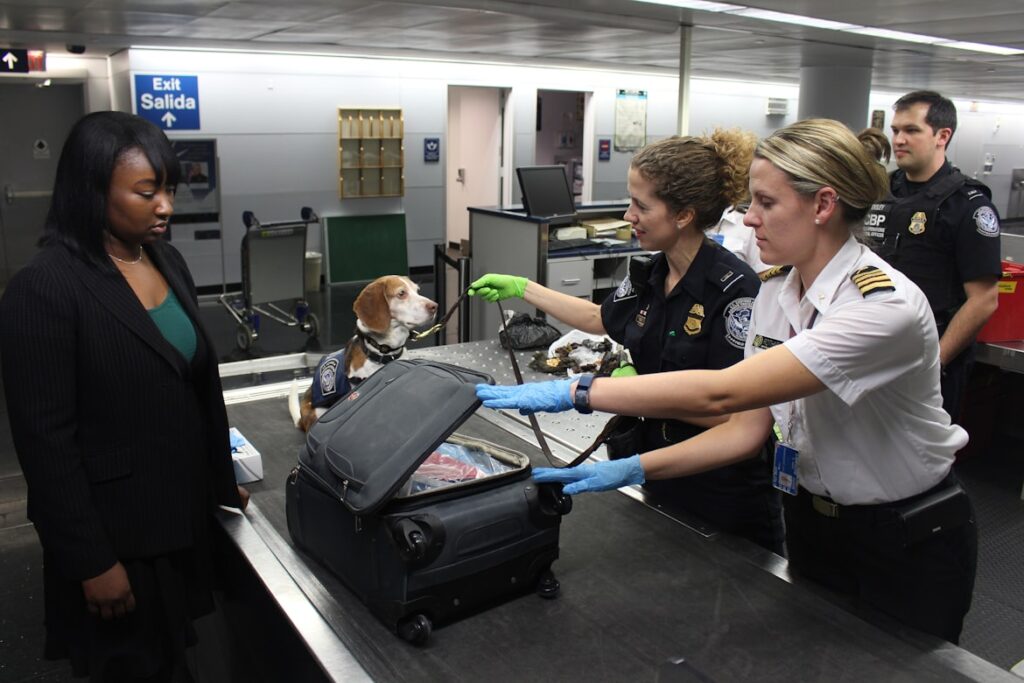
Yes. In the United States, they can.
This authority comes from a legal idea called the “border search exception”.
Normally, the Fourth Amendment protects you. It requires police to get a warrant to search your property. But the government argues this does not apply at the border. They claim the need to protect the country outweighs your privacy.
Civil liberties groups like the ACLU and EFF strongly disagree. They argue a phone is not like a suitcase. It contains the “minutiae of our private lives”. The Supreme Court agrees in a domestic context. But the law at the border is still unsettled.
So, how common is this?
U.S. Customs and Border Protection (CBP) data shows it is rare. In Fiscal Year 2024, CBP searched 47,047 electronic devices. This sounds like a lot. But it is less than 0.01% of all arriving travelers.
The chances are low. But the number is not zero. It happens.
Agents are looking for evidence of terrorism, child exploitation, drug smuggling, and visa fraud. They also search to verify a traveler’s “intentions”. For example, they might check an artist’s phone for messages about paid work. This could be used to deny entry for visa fraud.
Your Rights at a U.S. Border
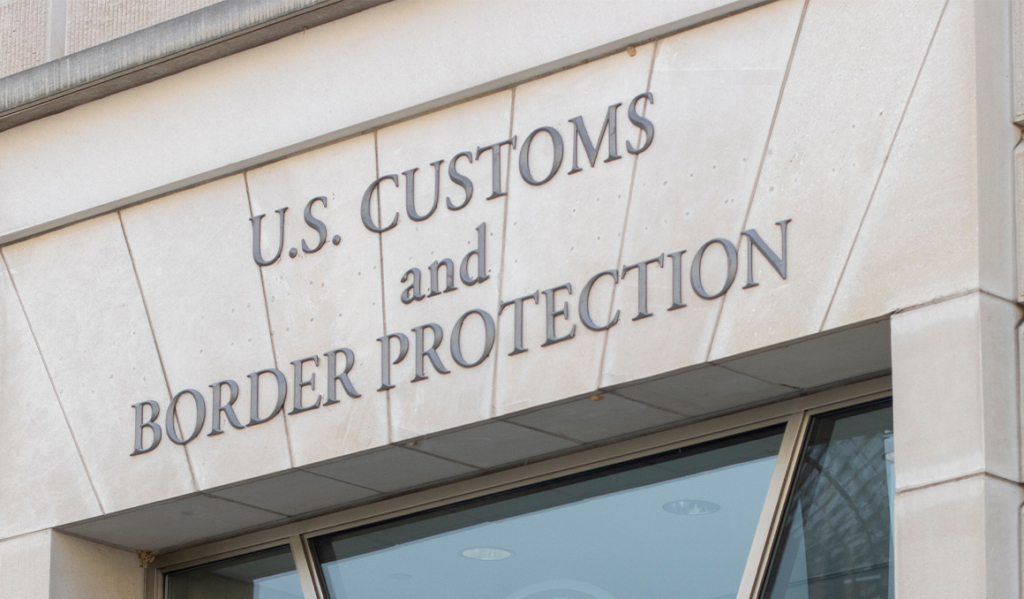
What happens if you refuse a search? Here’s the short version: what you can and can’t do depends on who you are.
Your passport or visa status makes a huge difference, and so does how much hassle you’re willing to risk.
U.S. Citizens
You’re in the safest spot here. The government can’t stop you from entering your own country. You can say no if an agent asks you to unlock your phone.
But, and it’s a big but, that refusal comes at a cost. You’ll almost certainly be delayed for hours, maybe longer. They can still take your phone, send it off for “inspection,” and hold onto it for days, weeks, even months. You’ll get in, but your phone might not.
Lawful Permanent Residents (Green Card Holders)
This is where things get tricky. In theory, you should be treated like a citizen. In practice, it’s messier.
Refusing a search could lead to your phone being taken, and in some cases, it could trigger a review by an immigration judge. Not common, but possible. So it’s a high-risk move.
Non-Citizens (Visitors, Visa Holders)
This is the riskiest category of all. If you’re not a U.S. citizen or permanent resident, you don’t have the same rights at the border. That means if you refuse to unlock your phone, they can simply turn you around.
For many travelers, that’s exactly what happens. Agents can cancel your visa on the spot and put you on the next flight home. So, yes, you can technically refuse. But it often ends the trip right there.
Traveler Status
Right to Refuse Unlock?
Consequence of Refusal
U.S. Citizen
Yes.
High. Cannot be denied entry, but device will likely be seized for weeks/months.
Lawful Permanent Resident
Yes, but high risk.
Very High. Device seizure and possible referral to an immigration judge.
Non-Citizen / Visa Holder
No (Effectively).
Extreme. Refusal is grounds for denial of entry and visa revocation.
Also See: My Friends Spent All Day in Line. I Renewed My Passport Without Leaving Home. Here’s How
What About Canada and Europe?
So what about Canada and Europe? Do they play by the same rules as the U.S.? Not exactly.
Traveling to Canada
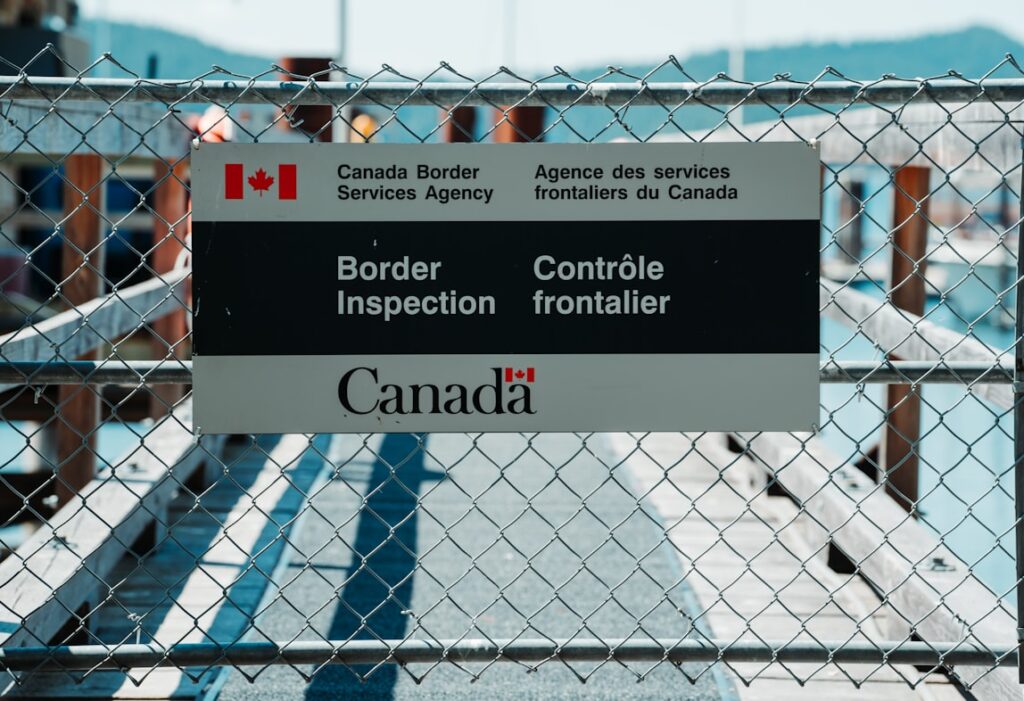
Right now, Canada’s situation is… kind of a mess.
For a long time, the rule was simple, and not great for privacy. The Canada Border Services Agency (CBSA) clearly said on its website: if an officer asks for your password, you have to give it.
But that changed in August 2024. The Ontario Court of Appeal decided that random phone searches without suspicion violate Canadian rights. The case was R v. Pike, and it basically said, “Hey, this law doesn’t hold up under the Charter of Rights and Freedoms.”
The court gave the government time to rewrite the law. Which means right now, things are stuck in legal limbo. Some border agents might still follow the old rule, even though it’s been ruled unconstitutional.
So if you’re traveling to Canada, expect confusion. One officer might wave you through, another might insist on your password.
Traveling to the EU (Schengen Area)

You’ve probably seen headlines about the EU’s “digital border.” Sounds high-tech, maybe even a little scary, but here’s the truth.
The new Entry/Exit System (EES), launched in October 2025, doesn’t touch your phone at all. It’s just a digital version of the old passport stamp. It logs your entry and exit using your passport details, a facial scan, and fingerprints. That’s it.
As for searching your phone? That’s up to each individual country. It’s not standard practice across the EU, and it’s definitely not routine for tourists like it can be in the U.S.
How to Actually Secure Your Phone Against Border Checks
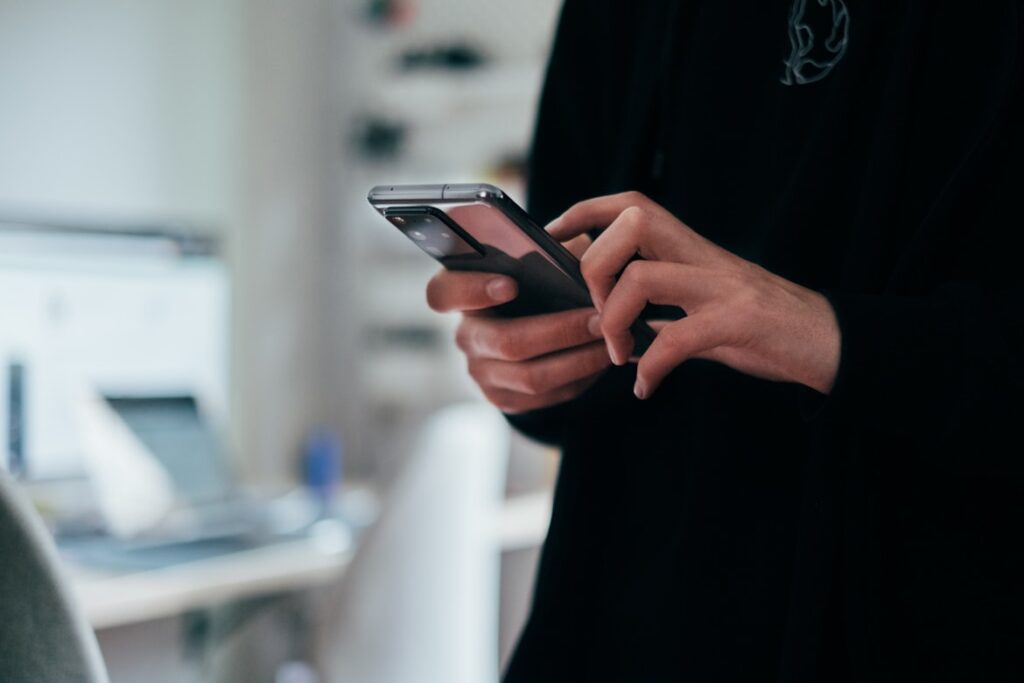
Alright, here’s the part everyone actually cares about: how to really protect your phone when you’re crossing a border.
You can’t control what a border agent decides to do. But you can control what’s on your phone when they ask for it. Here’s a simple three-level plan depending on how far you want to go.
Level 1: The Digital Cleanup
This is what most travelers should do.
Start by moving your important data to the cloud.
According to CBP policy, agents aren’t supposed to search data that’s only stored online. They’re even instructed to put your phone in airplane mode before searching it. So, store your sensitive stuff, like private photos, work files, and financial documents, in a secure cloud service, not on your device.
Next, delete apps you don’t want anyone scrolling through.
Logging out isn’t enough; phones often keep cached data that agents can still see. The safer move? Uninstall them. That includes social media, banking, or private messaging apps like WhatsApp or Signal. You can reinstall everything once you’re past customs and on Wi-Fi at your hotel.
Level 2: The Travel Phone
If you want more control, you can go one step further and use a travel-only phone, a “burner” loaded with just the essentials. Keep your main phone powered off and safe at home.
This gives you a clean separation between your personal life and your travel data. But there’s a catch: it can make you look suspicious.
As one lawyer from the Electronic Frontier Foundation said, if you show up with a totally empty phone, agents might think you’re hiding something. And if you’re not a U.S. citizen, that alone could get you denied entry.
It’s one of those “damned if you do, damned if you don’t” situations. So, for non-citizens, this move can actually backfire.
Level 3: The Factory Reset
This is the nuclear option: the “I’m not taking any chances” move.
Before you travel, back up your phone to your computer and encrypt that backup. Then, do a full factory reset to wipe your phone completely. Bring it with you empty, and once you’re through customs, restore everything from your backup.
Technically, this is the most secure method. Practically, it comes with the same issue as the travel phone: a wiped device looks suspicious.
If you’re a U.S. citizen, you can probably get away with this. If you’re a visitor or on a visa, it’s safer to stick with Level 1.
The Single Most Important Tip: Passcode vs. Face ID
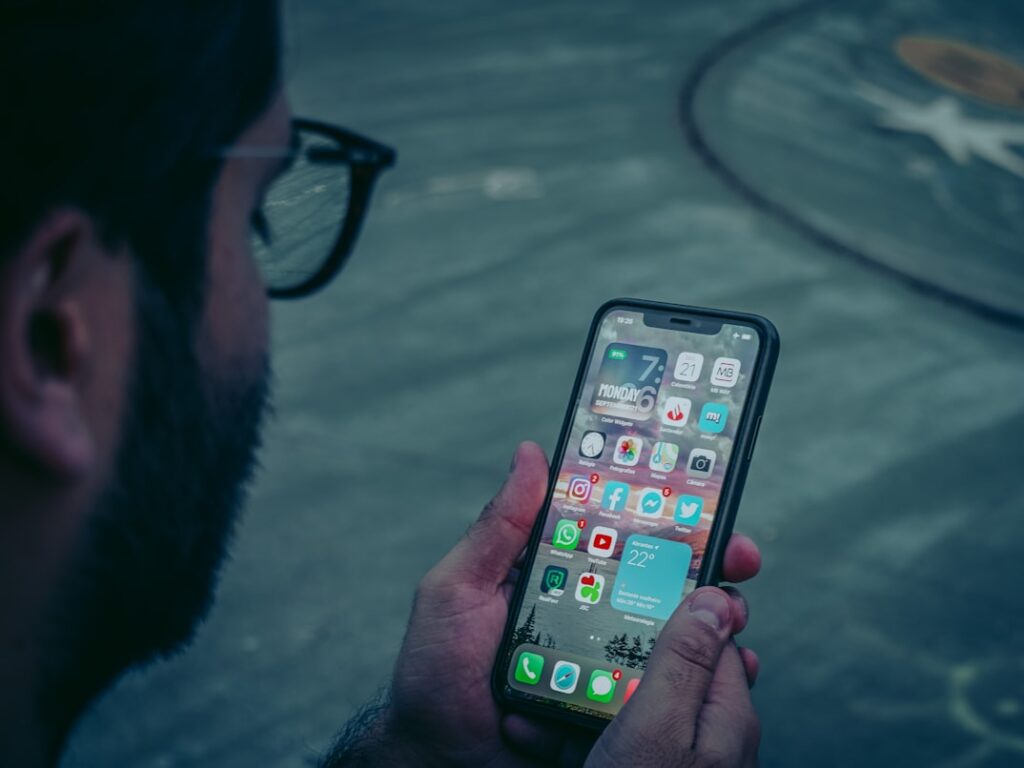
Here’s the single biggest thing you need to know, the one move that can make or break your privacy at the border.
It’s not about what apps you use, or even what data you delete. It’s about how you unlock your phone.
There’s a huge legal difference between your face and your passcode.
Here’s the simple version: the Fifth Amendment protects you from having to testify against yourself. A passcode is something you know. Making you say or type it is like forcing you to confess. It’s considered “testimonial.” Courts tend to give that some legal protection.
But your face or fingerprint? That’s something you are. And courts have mostly treated biometrics like a physical key, not a confession. Meaning, if an officer tells you to look at your phone or press your thumb on the sensor, that’s usually fair game. They don’t have to ask for your passcode.
And yes, agents know this. They’ll often skip the question entirely and just say, “Look here.”
Also See: I Found a Faster, Smarter Way to Delete Myself from the Internet – And It’s Almost Too Easy
The One Thing You Should Always Do Before You Land
Power. Off. Your. Phone.
Completely.
Do it before you step into the customs line.
Here’s why: when your phone fully reboots, it goes into a high-security mode. Both iPhones and Androids disable Face ID and fingerprint unlock after a restart. To open the phone, you’ll have to type your passcode, the one that’s legally better protected.
You’re not breaking any rules; you’re just making sure your phone starts in its most secure state. If someone wants to get in, they’ll have to explicitly ask for your passcode, which puts them in legally tricky territory.
So yeah, of all the fancy security steps out there, this one’s the simplest, and smartest, way to protect your phone at the border.
What to Do During a Border Agent Phone Search
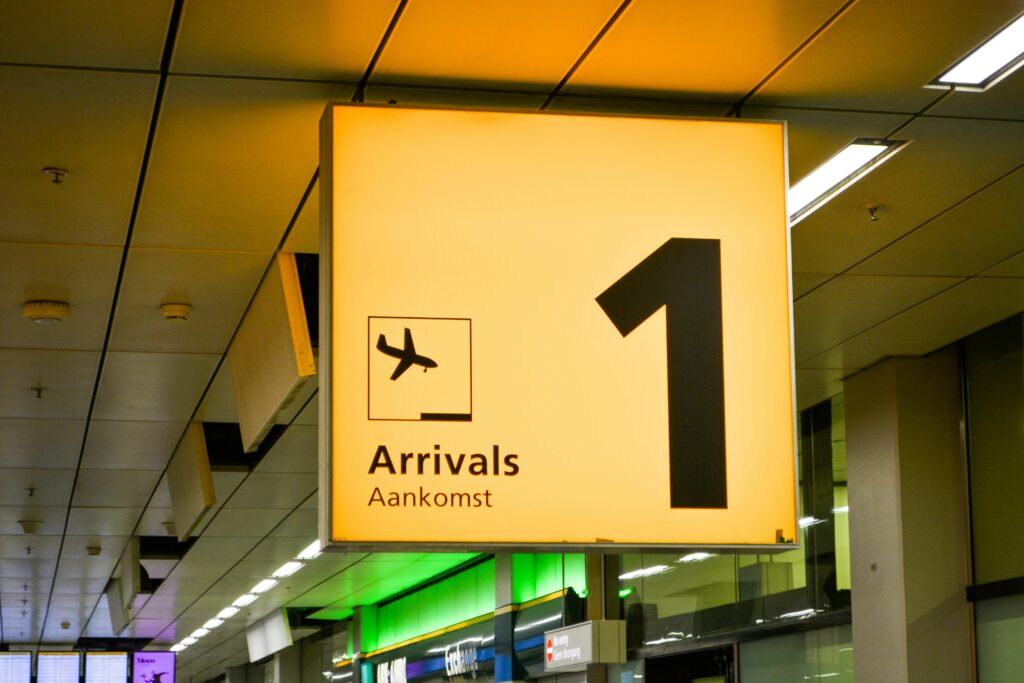
So, let’s say it actually happens: you’re pulled aside, and the border agent asks to search your phone. What do you do?
- Stay Calm. Don’t Lie.
First rule: stay cool. Take a breath. Be polite, even if you’re frustrated or nervous. Losing your temper or being sarcastic will only make things worse.
And whatever you do, don’t lie. Seriously. Lying to a federal agent is a crime, and it’s one that can spiral fast. Just answer what’s asked, keep it short, and don’t offer up extra details.
- Say You Don’t Consent.
Even if you think the agent is going to search your phone no matter what, it’s still important to make your position clear. Say, calmly:
“I do not consent to a search of my devices.”
They’ll probably go ahead anyway, but your statement matters. If you ever need to challenge the search later — say, in court — that line shows you didn’t voluntarily agree.
- Ask to Type Your Password Yourself.
If you decide to cooperate, don’t say your password out loud. Ask to type it in yourself.
Why? Because once you say it, they can write it down or store it somewhere. It’s rare, but it happens. Typing it yourself keeps that bit of control in your hands.
- Get a Receipt.
If they take your phone, make sure you get proof. The official document is called a CBP Form 6051-D. It’s basically a receipt showing what they seized. Keep it.
If you can, note the agents’ names and badge numbers too. You’ll need that if you ever want to follow up or file a complaint.
It’s not a fun situation, but staying calm, clear, and careful can make a world of difference.
Post-Seizure: Is Your Phone Safe?
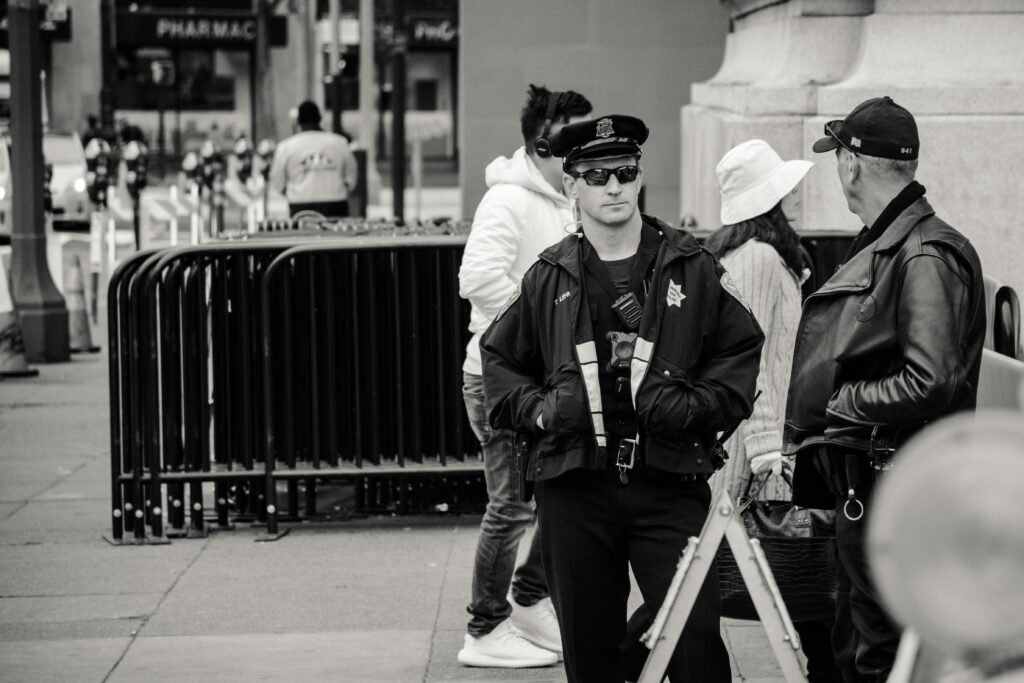
So, you finally get your phone back after a border check. Great, but here’s the tough question: is it still safe?
The honest answer? Probably not. Once your phone’s been out of your hands, you have to assume it’s compromised.
How to Check for Tampering
There are a few signs that might tell you someone messed with your phone. Start with the basics:
- Is your battery draining faster than usual?
- Is your data usage higher than it should be?
Those could be clues that something’s running in the background.
If you’re on an iPhone, go to Settings → General → VPN & Device Management. If you see a “management profile” you don’t recognize, that’s a big red flag. It could mean someone installed spyware or a configuration tool that gives them access.
On Android, open Settings → Security → Device admin apps. Look for anything weird or unfamiliar. If something looks off and you didn’t install it, don’t ignore it.
Read: The Travel Hack That Saved Us 60% on Our 2025 Dream Trip (Without Giving Up Luxury)
The Only 100% Safe Move
Here’s the hard truth: you’ll never know for sure what’s been done. Governments use some of the most advanced forensic tools in the world. If they wanted to plant something, you probably wouldn’t catch it.
So the only 100% safe option is simple: wipe your phone completely.
Do a full factory reset. Then, restore everything from the clean, encrypted backup you made before your trip.
That’s how you close the loop. That’s how you make sure your phone, and your data, are really secure again.
Travel Smart, Travel Secure
Let’s be real, a border agent searching your phone is pretty unlikely. The numbers show it happens to a tiny fraction of travelers.
But when it does happen, the fallout can be serious. Some people miss flights. Others get denied entry altogether. And for everyone, it’s an invasion of privacy that feels deeply personal.
But the truth is, digital privacy at the border isn’t guaranteed; it’s something you have to build for yourself.
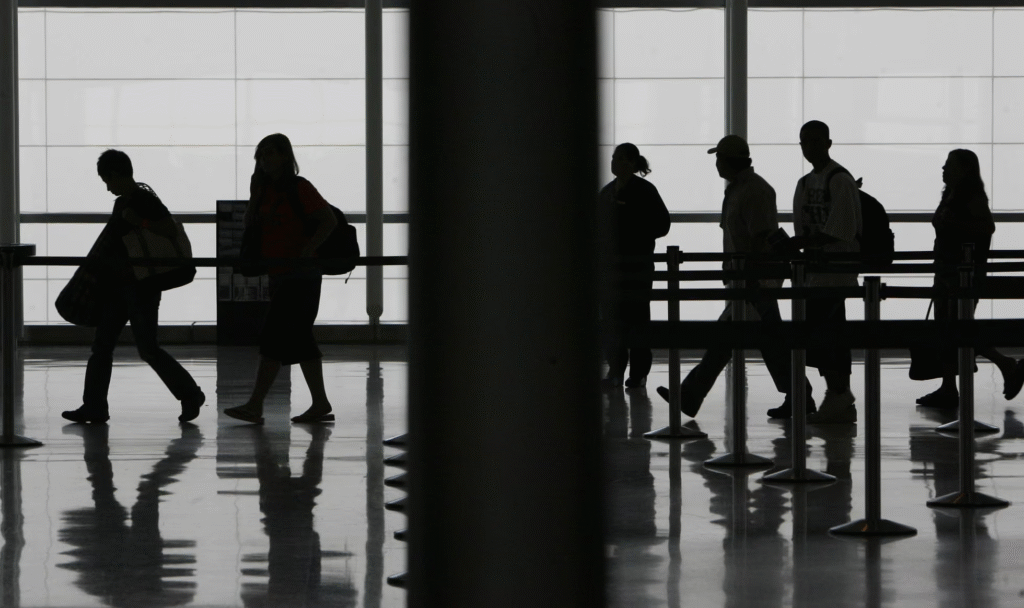
The best defense is preparation. Before you even pack your bags, decide how you want to handle the risk. Think about your citizenship status, where you’re headed, and what’s on your phone.
Clean up your data, keep only what you need, and when the plane starts descending, do that one crucial thing: power your phone off.
Your digital life is your life. It holds your memories, your work, your private world. It deserves the same care you give your passport or your wallet.
Travel smart, travel secure, and you’ll move through the world with a little more confidence and a lot more peace of mind.